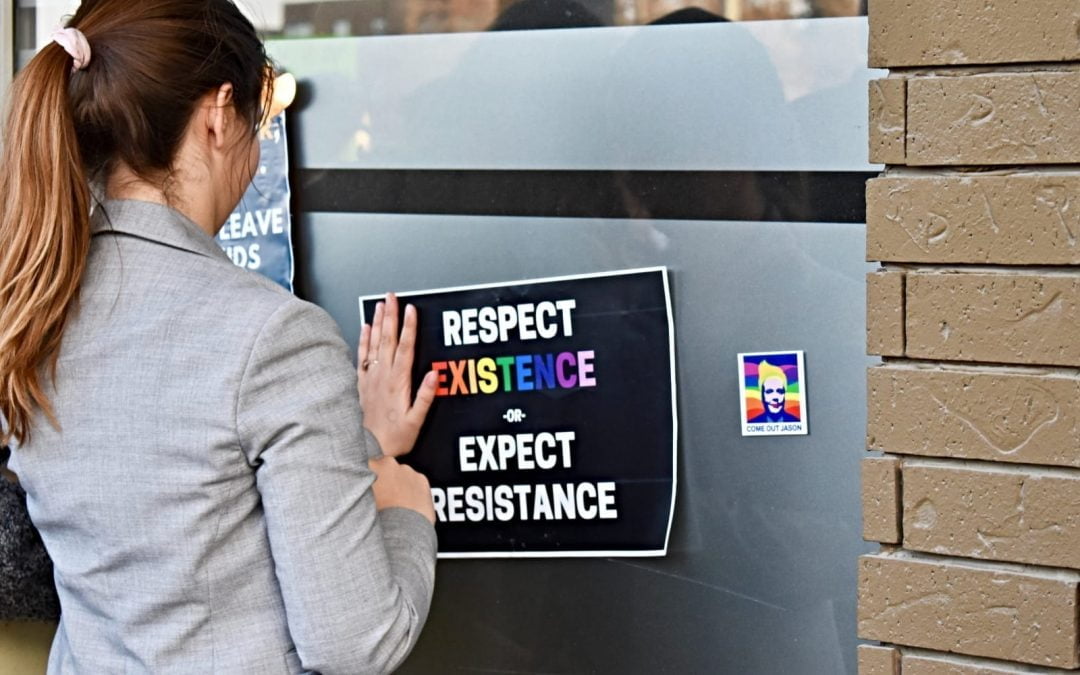The Baylor University community is divided over inclusion for LGBTQ+ students on campus.
Two petitions have come out of the conflict: one favors preserving Baylor’s nonaffirming stance of LGBTQ student groups with 110 signatures; the other asks Baylor to recognize LGBTQ student groups and to allow them to meet on campus with more than 3,200 signatures.
In response to the outpouring of support from the Baylor community for LGBTQ students, the Texas Tribune reported that Lori Fogleman, assistant vice president for media and public relations, said “the 3,200 signatures represent about 2% of the school’s students, faculty, staff and living alumni.”
The 110 signatures were given neither a percentage nor a dismissive comment.
KWTX-TV reported that Baylor issued an official statement regarding Baylor’s nonaffirming policies for LGBTQ+ students, which said Baylor is “focused on how we love and care for all our students so they have a healthy, safe and nurturing learning environment” and that they “believe this can be done both inside and outside of officially recognized student organizations.”
Baylor’s Statement on Human Sexuality reads, in part, “Temptations to deviate from this [biblical] norm include both heterosexual sex outside of marriage and homosexual behavior. It is thus expected that Baylor students will not participate in advocacy groups which promote understandings of sexuality that are contrary to biblical teaching.”
Essentially, Baylor believes they can support and love LGBTQ+ students while separating them from student life.
With this response, Baylor is saying to their queer students, “We love you – to a point. We would love you more if you could clone yourselves to be like us, think like us, love like us. We will love you as long as you don’t seek community. We will love you from a distance. We will love you if we cannot see you.”
As I interpret it, the love of Christ does not have conditions. As it stands now, Baylor is presenting love to their queer students with an asterisk.
In a personal essay I published with The Salve, I detailed how harmful the nonaffirming policies were for me as a closeted lesbian at Baylor.
The most damaging part of such policies? They made me feel like I was incapable of loving and being loved.
The most important commandments of Christ – to love God and love others – seemed fundamentally impossible to me because institutions like Baylor made me feel like I was broken. Like I was undeserving. Like I could never be enough.
Their commitment to tradition, to being perceived as righteous, made me feel like everything in me was wrong.
I’ve grown a lot since I left Baylor. I’ve had to learn to be brave, to be vulnerable, to stop hiding a fundamental part of who I am.
Yet, in so many ways, I learned how to love at Baylor. So much of who I am is because of the community at the university: the people, the classes, the place.
But a key part of me, the part wired for romantic love, could never come out of hiding there. The policies in place instilled in me a deep sense of shame for how I was born. For how I was created to love.
When I look back at my memories of Baylor, they are tinted with a perpetual shadow of shame, anger and darkness knowing that I wasn’t allowed to be fully myself. That, in the name of Jesus, I was not fully loved because I was different.
To hear Baylor say they want to love their LGBTQ+ students while preventing them from creating their own student groups is almost laughable. Love cannot live alongside such rejection.
It’s impossible to love someone when you’re not listening to them. And Baylor LGBTQ+ students are speaking very clearly: They want to be seen, to be given official community status on their campus.
But Baylor isn’t listening. When they say that LGBTQ+ students can have their own separate committees and groups outside of campus life, they are isolating those students.
It is a “separate but equal” policy – an expressed equal love for all students that keeps LGBTQ+ groups separate through lack of recognition – grounded in discrimination.
How can Baylor hope to break through to that next plane of achievement, the one that is so dependent upon their students growing, discovering and prospering at their university, if they don’t allow all of their students to be seen and loved and supported?
Baylor may insist on moving forward with their “separate but equal” stance when it comes to their LGBTQ+ students.
If they do, they are sending a clear message: It is more important to be traditional than it is to be loving. To protect policies instead of people. To promote conformity instead of accepting individuality.
I cannot think of anything less in keeping with the teachings of Jesus Christ, who listened to, wept with and healed those on the outskirts of society.
His message has always been about love, compassion, softness, listening; changing when it’s easier to stay the same, abandoning wealth when it feels necessary to maintain funding, and waking up when it’s so much more comfortable to stay sleeping.
If Baylor loses sight of this calling, they have lost sight of Christ.
Editor’s note: This article is part of a series focused on engaging the emerging generations of faith leaders. Learn more about EthicsDaily.com’s “Emerging Voices” and “U:21” series here.
Madeline Kay Sneed is a writer and MFA Candidate in fiction at Emerson College in Boston, where she is currently working on a novel about Texas, family, faith and the LGBTQ community. She is from Houston, Texas.

